Jerry Butler (born December 8, 1939) – Stop Steppin' On My Dreams (1972)
The Iceman's socially conscious Songwriters Workshop gave birth to his masterpiece double LP The Spice Of Life and this powerful plea to save the children.
View most updated version of this post on Substack.
Open YouTube playlist of all songs in this post.
The legendary Jerry Butler is a singer/songwriter, multi-instrumentalist, and producer who was the original lead singer of the Impressions before going solo in 1959. His records were a mainstay of R&B charts throughout the sixties and seventies. He eventually entered politics in Chicago and served from 1985-2018 as a Democratic member of the Cook County Board of Commissioners.
Born in Sunflower, Mississippi, Butler’s family moved to Chicago when he was two years old. He was raised in the Cabrini–Green Homes project on the North Side, and when he was 17 met fellow resident Curtis Mayfield, who was three years his junior. They became fast friends, singing together at Mayfield’s grandmother’s Travelling Soul Spiritualists’ Church, and two years later joined a doo-wop group called The Roosters. In 1958, they changed their name to The Impressions and recorded “For Your Precious Love,” a song Butler co-wrote and sang lead on. It hit #3 R&B and launched their career.
See our earlier post on Mayfield for more on the group’s early history.
Butler left the Impressions to go solo in 1959. After a show in Philadelphia, WDAS-FM DJ George Woods gave him the nickname “Iceman” because of his cool, smooth vocal style, and it stuck. One of his first solo singles was “He Will Break Your Heart,” released in August, 1960. Co-written by Butler, Mayfield, and Vee Jay Records A&R head Calvin Carter, and featuring Mayfield on guitar and uncredited backing vocals, it hit #1 R&B and #7 on the Billboard Hot 100.
For most of the next decade, Butler released a string of singles and albums that performed well, although only three of his singles went top-10 on the R&B charts and his highest-charting record on the Hot 100 at #5 was “Let It Be Me,” his 1964 duet with Betty Everett.
His breakthrough LP The Iceman Cometh was issued in November, 1968 on Mercury Records, produced by Philadelphia-based newcomers Kenny Gamble and Leon Huff. It went to #2 on the R&B album charts and #29 on the Billboard 200 with several singles including his all-time biggest song, the #1 R&B and #4 Hot 100 hit “Only The Strong Survive.”
Gamble and Huff also produced his next album Ice On Ice (1969), which was largely arranged by guitarist Roland Chambers and musical genius Thom Bell. One of its songs that Butler, Gamble and Bell co-wrote was “A Brand New Me.” Covered later that same year by Dusty Springfield, her version reached #24 on the Hot 100. But when the two Philly producers clashed with Mercury over getting paid a larger share for their production work, Gamble and Huff parted ways with the label and Butler in late 1969. Their last collaboration was the You & Me LP, released in early 1970, which Gamble, Huff, and Butler co-produced with the emerging Chicago talent Donny Hathaway.
Butler remained friends with Gamble and Huff, but lost his working relationship with the supremely talented songwriter/producers. In response, he kicked off the next decade by founding the Jerry Butler Songwriters Workshop in Chicago in January, 1970. It was an ambitious project designed to foster young writers’ talent and provide Butler and other artists with solid material.
As Butler recalled in his 2004 autobiography Only the Strong Survive:
“I was in a terrible dilemma. Should I risk my professional reputation recording substandard material? Or should I use what I had learned over the years to lay the groundwork for developing songwriters who would supply me—and others—with quality songs for a life time. I chose the latter.”
In August, 1970, Butler penned an essay for Billboard titled “Black Music is Getting Intellectually Involved.” He argued that Black artists like Sly Stone, Stevie Wonder, Marvin Gaye, and Donny Hathaway were using their artistic freedom to create socially conscious music. Butler would soon follow in this direction with some of the best tracks developed in his Songwriters Workshop.
His 1971 album The Sagittarius Movement opened with the lyrically profound message song “Walk Easy My Son,” full of words of wisdom to live by (“When I was a very small boy, looked through the cornfields and wondered…if every man had his own piece of land, so he'd never know hunger”).
It was written by workshop participant Charles Jackson, the Reverend Jesse Jackson’s brother, who would later join forces with pianist Marvin Yancy to co-produce Natalie Cole’s award-winning albums in the late seventies.
Other highlights included the beautiful love song “Let Me Be,” written by Skip Scarborough and featuring Hathaway on piano; the lyrically deep anthem “Sail Away,” co-written by Butler’s younger brother Billy and workshop participants Larry Wade and Terry Callier; and “Windy City Soul,” also co-written by Wade and Callier, which remains near the top of the pantheon of all-time great Chicago theme songs. It was released as the B-side to the album’s lead single “Ain't Understanding Mellow,” a duet with singer Brenda Lee Eager which hit #3 R&B and #21 on the Hot 100.
The album was co-produced by Butler and Chicago soul veteran Gerald Sims. It featured bassist Cleveland Eaton of the Ramsey Lewis Trio, who replaced original member Eldee Young. Butler’s revitalized musical direction was heralded in its liner notes, written by Ramsey Lewis.
In 1972, Butler released his epic double album The Spice Of Life, which he co-produced with Sam Brown III who went on to write and produce for Michael Jackson and the Supremes.
Starting with its opening track “What's So Good About It (You're My Baby)” a heartfelt love song with socially conscious lyrics (“I went off and fought a war…I didn’t even know what for”) which he co-wrote with Brown, the project was packed with one stellar track after another. Quincy Jones, Dionne Warwick, and Henry Mancini gave the double LP their seal of approval on its back cover, plus Buddy Miles who wrote, “I feel like he’s my father…the album is absolutely superb.”
Standout cuts included the message song “A Prayer” which he also co-wrote with Brown and was released as the B-side to The Spice Of Life’s first single, the #20 R&B “I Only Have Eyes for You”; the powerful unity anthem “I Need You” written by Jerry Peters (“I need you, you need me, hey let's face the facts brother, we do need each other”); and “Get On The Case,” a profound meditation on the need to save the world.
Co-written by Butler’s early producer Calvin Carter, James Blumenberg and Nashville guitarist Johnny Jones (who mentored Jimi Hendrix), it was originally recorded by Billy Butler and Larry Wade’s group Infinity in 1969, co-produced by Billy and Cal Carter.
Another of the album’s most powerful message songs was “Stop Steppin' On My Dreams,” with lyrics addressing gun violence that are far more relevant today than they were fifty years ago (“Save the babies, that's what I say. I see a whole lot of folks shootin' down...the babies”). Butler and Brown co-wrote this powerful plea for a better tomorrow from the perspective of Butler’s “couple little guys just growin' up.”
The Spice Of Life also contained superb cuts like the funky love song “You Can't Always Tell” featuring Brenda Lee Eager, which was co-written by Billy Butler, Callier and Wade; the message song “Don't Rip Me Off,” written by future Pleasure lead singer Sherman Davis and originally recorded by Tennyson Stephens in 1970; and its closing cut, a stirring cover of the Burt Bacharach and Hal David-penned peace song “All Kinds of People,” which Bacharach released under his own name in 1970, featuring Cissy Houston on vocals.
Butler had been responsible for one of Bacharach’s big career breaks when he decided to record the Bacharach-David song “Make It Easy on Yourself” in 1962, and Butler’s then-producer Cal Carter asked Bacharach to oversee the recording session. It was the first time he was allowed to produce one of his own songs, even though Bacharach was only credited as the arranger.
The highest-charting single off The Spice Of Life was a cover of a song Gamble and Huff wrote for the O’Jays in 1969, “One Night Affair.” The original appeared on their In Philadelphia LP, arranged by Thom Bell and Bobby Martin, backed by future core MFSB members including Norman Harris, Ronnie Baker, Earl Young, and Bobby Eli. It was an early example of what would soon be known worldwide as the Sound of Philadelphia.
Butler’s version of “One Night Affair” added a lusher arrangement and was a big hit on dancefloors in the growing underground disco scene in New York City, Boston, and other urban areas. It went to #6 R&B and reached #52 on the Hot 100.
Butler’s next album Power of Love (1973) was solely produced by Johnny Bristol. It featured an all-star lineup including Funk Brother bassist James Jamerson, James Gadson on drums, David T. Walker and Dennis Coffey on guitars, and H.B. Barnum and Joe Sample on keyboards.
The lyrically deep slow jam “Whatever Goes Around” was co-written by Callier and Wade. They also co-wrote the phenomenal cut “Whatever's Fair,” which was later sampled by Mos Def and DJ Honda. The album’s socially conscious title track was co-written by Butler and Bristol.
Interviewed by Rolling Stone in 1973, Butler explained his motivation for setting up the Songwriters Workshop:
“The idea for the workshop came out of self-interest. I had obligations to do thirty sides for Mercury…Tin Pan Alley, where you used to be able to go get a couple of songs, has died for all intents and purposes. I knew Chicago was not the music center that it once was. But at the time, I knew there were a number of young cats in Chicago with a lot of songwriting talent, who just didn’t have any place to take it to. And even more important, nobody to encourage them.”
Happy 84th Birthday to the legendary Iceman.
Further info:
“Interview with Jerry Butler, American singer, songwriter, musician, producer and chairman of the Board of the Rhythm and Blues Foundation,” by Larry Katz (Boston Herald reporter), The Katz Tapes, 2000.
“Chicago Soul Connection: The Legacy of Jerry Butler’s Songwriters Workshop,” by Mark Anthony Neal, NewBlackMan (in Exile), June 10, 2009.
“Black Music Getting Intellectually Involved,” by Ayana Contreras, DarkJive.com, September 26, 2010.
#soul #funk #Impressions #JerryButler


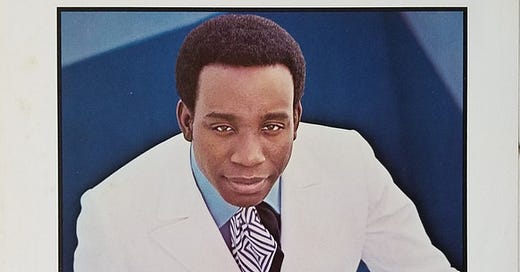


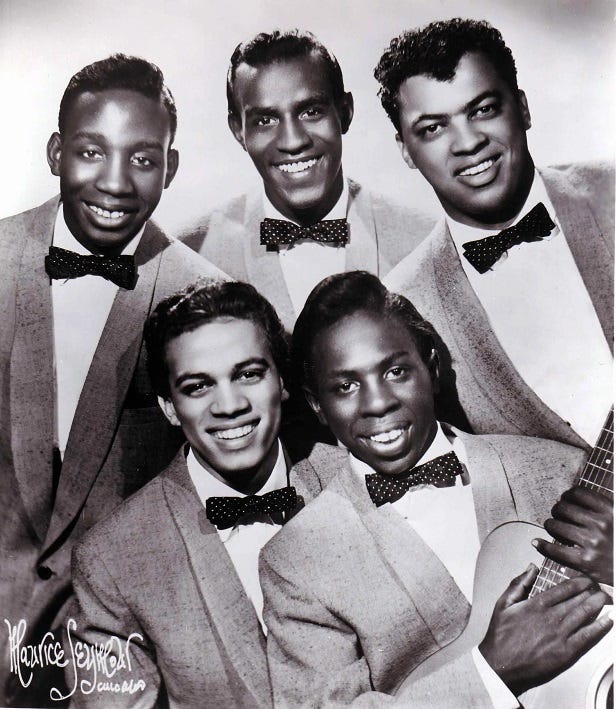
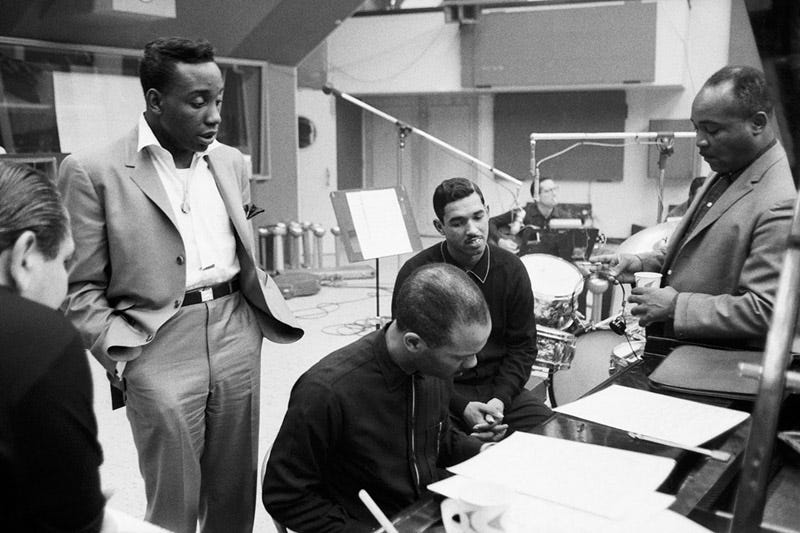

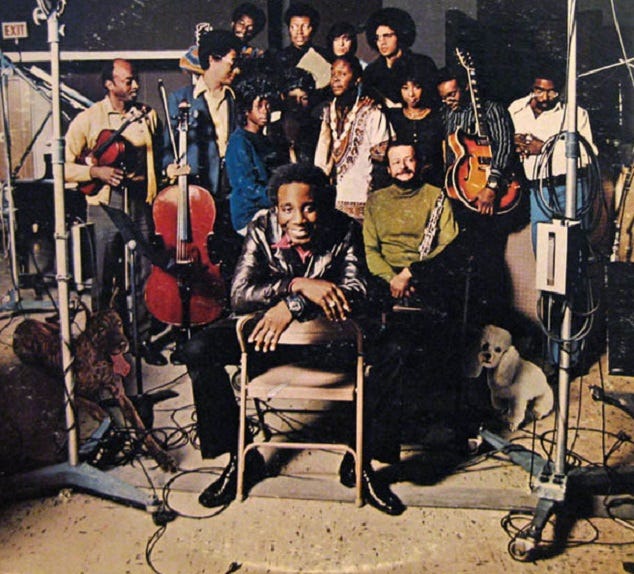
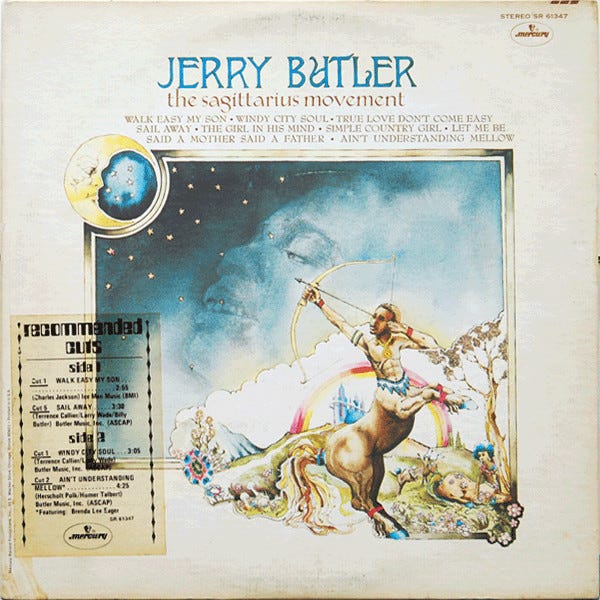


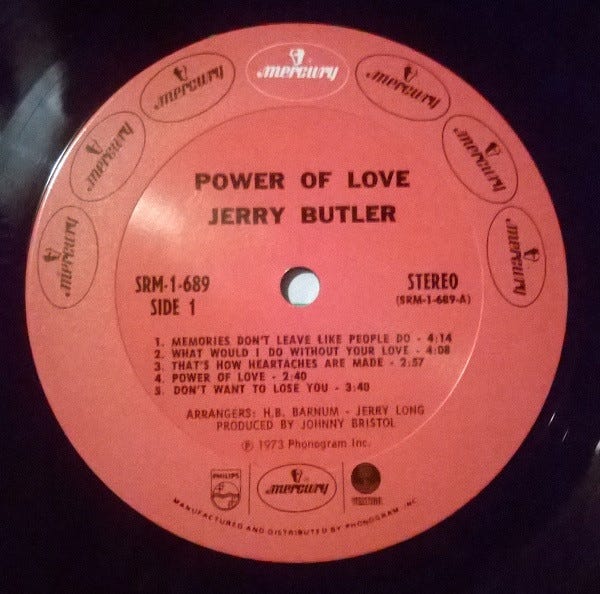


A really magnificent piece on a truly amazing talent. I had the album The Iceman Cometh while I was in college; in ‘68 or ‘69 Jerry Butler gave a really great concert at my school, Davidson College, during the Homecoming weekend. A year earlier, also during homecoming, Chuck Jackson was the headliner! I grew up at the right time.